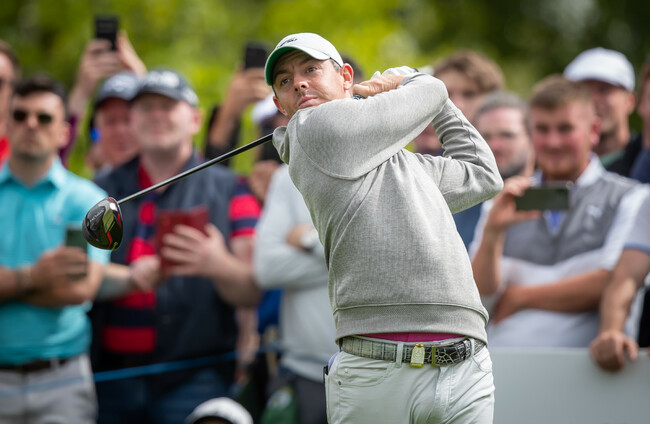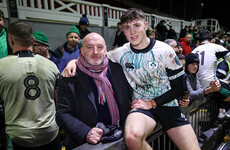1. “Lou Macari was shouting, ‘Ash, get warmed up’ to encourage the manager to make a change, to give me a couple of minutes, but I had had an argument with him a few weeks before after a match at Old Trafford,” he recalls. “He blamed me for something that went wrong and I had nothing to do with it. He probably just lost his head and I snapped back at him and said something that I shouldn’t have said. He tucked it away and remembered it. It was payback time.”
United were really a cup side in those days, with Liverpool ruling the roost, and the Old Trafford hierarchy were also notoriously tight when it came to rewarding their players. Grimes’s wages had risen from £90 a week when he joined the club to £300, but he felt he was being undermined by high tax rates. Thus it was that Grimes left Old Trafford in 1983 to join Coventry City, then in the English top flight.
“I went to Coventry for the transfer fee,” he explains. “All the United players were leaving; Gordon McQueen, Joe Jordan. We all had to make a move to make a few quid, especially from the transfer fees. A lot of players moved clubs just to get a living out of it. We weren’t getting any younger. Ron Atkinson offered me a new contract, but there was no signing-on fee.”
Speaking to Paul Rowan of the Sunday Times, former Republic of Ireland international Ashley Grimes recalls the adventures he had as a footballer.
2. James has something else in mind. He aims to stick around the NBA long enough to overlap with Bronny, who’s currently entering his senior year of high school. If they pull it off, it would make them the first father-son duo to play together in an NBA game, and only the fourth such pairing in the four major U.S. men’s sports (after Gordie played with Mark and Marty Howe in the NHL; and both Ken Griffey and Tim Raines played with their sons in MLB).
When James first floated the plan in February, telling The Athletic that “my last year will be played with my son” and that “it’s not about money at that point,” the NBA world set about interpreting. What did this mean for LeBron? For the Lakers? For league balance?
Of course, this scenario rests on a set of assumptions, including that Bronny, a 6′ 2″ combo guard who’s generally ranked in the top 50 of his class, will be good enough to reach the NBA. And, furthermore, that he even wants to play basketball for a living, which has been assumed but not yet stated.
Chris Ballard writes about LeBron James’ dream of playing in the NBA with his two sons, Bronny and Bryce in Sports Illustrated.
3. She did the math in her head: she had three weeks until the Champions League began.
Then she started presenting the idea to Dave, her husband: She would find a team that will allow her to play in the Champions League — she would once again have a dream to chase. His reaction? “I think it was a little bit of an eye roll,” O’Reilly says. “Any spouse of an elite athlete knows what comes with the territory — we are extremists. You have some obsessions and that’s part of what makes you great.”
At first, the plan was to play for FC Zurich and intern for Wenger, who is now FIFA’s Chief of Global Football Development, but that proved impossible: she wouldn’t have been able to get a Swiss visa in time. O’Reilly was disappointed — “Dave could see how bummed I was,” O’Reilly says. “I’d really gotten my hopes up.” Then she found Shelbourne FC — having won the Irish league, they’d qualified for the Champions League. And, well, she’s an O’Reilly.
Her agent reached out to Shelbourne. They responded immediately: YES.
ESPN’s Gwendolyn Oxenham revists the incredible events which led to former USA superstar Heather O’Reilly signing for Shelbourne.
4. In recent months, McIlroy has now morphed from mere golfing superstar to statesman. He has put the PGA Tour up on his back. Fought the good fight. Turned down reportedly $300m (€300.2m) of Saudi Investment Fund money.
He has done it all with the charisma excruciatingly lacking from so many of his contemporaries.
It’s safe here to assume McIlroy’s third FedEx Cup triumph met with approval in the corridors of power because, well, consider the alternative.
Erase McIlroy from the leader board on Sunday and who – to use the American broadcasting colloquialism – moves the needle?
For all his squeaky cleanness, it’s not Scottie Scheffler. Or, despite the obvious international appeal, Sungjae Im.
It’s not Xander Schauffele or Max Homa or – for all his polish – Justin Thomas either.
It’s certainly not the eternally glum Patrick Cantlay.
Sepp Straka anyone?
Such is his draw, McIlroy has even been hailed and heralded in some quarters over the last 48 hours as the saviour of the game of golf.
Writing for the Irish Independent, Conor McKeown brilliantly sums up the impact that Rory McIlroy has been having on the world of golf lately.
5. Defender Ann Delaney, who worked in Jeyes, was already married before the tour and her husband Tommy also travelled as part of their small support team.
Delaney played football well into the 1980s and delightedly explained that her 10-year-old granddaughter won ‘Player of the Season’ with her club last year.
“I was a bit of a tomboy then and if Pat Noone had asked us to kick snow off a rope we would. He was an absolute gentleman,” she says.
Jeyes provided special kit bags but their tour was self-funded and a relative unknown called Johnny Logan was enlisted to play at one of their fundraisers in the Drake Inn.
They took the boat from Dublin to Holyhead and a ferry from Dover to Calais and stayed in a hostel in Reims, run by an enclosed order of nuns, though that still didn’t stop some of the wildest from sunbathing on the roof or breaking their curfew.
They were, literally, ahead of their time because the first governing body for Irish women’s football (ILFA) wasn’t set up until the following year.
In the Irish Examiner, Cliona Foley tells the brilliant story of the Jeyes team that went on a landmark soccer tour in France in 1972.
The42 is on Instagram! Tap the button below on your phone to follow us!













I heard they added another nostril.
Terrible player, he scored one good goal and everyone thinks he’s God. Absolutely disgraces the Argentina name #overrated
A very flawed genius, definitely the GOAT.